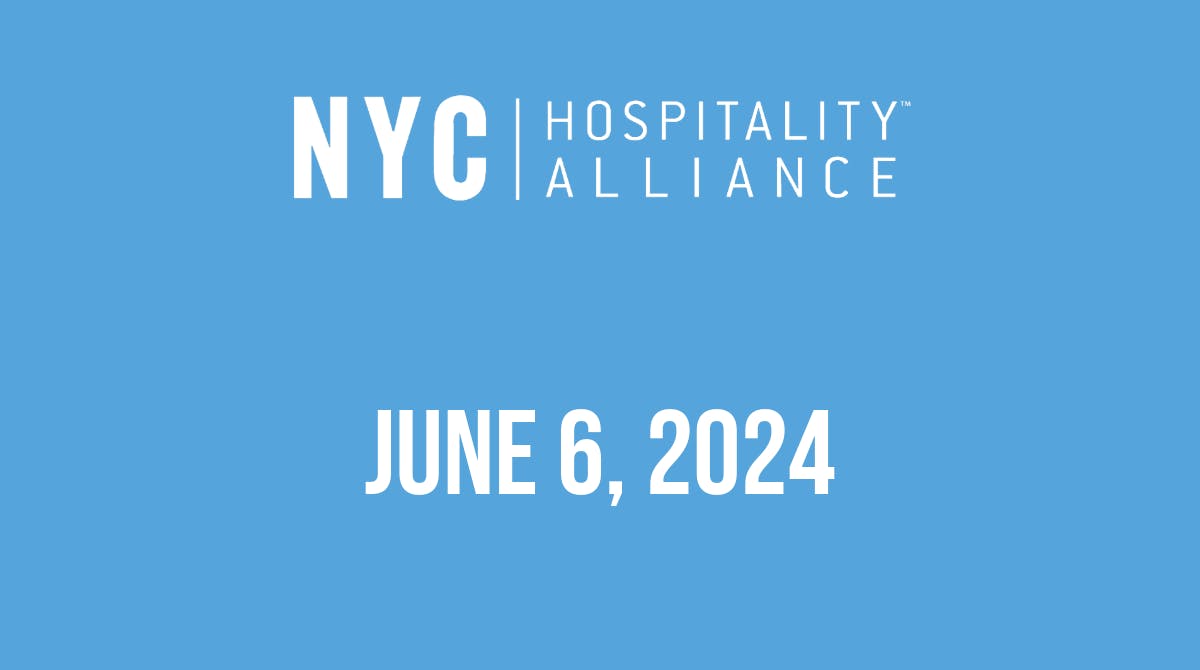Reservation Scalping Ban Passed!

The NYC Hospitality Alliance is happy to share great news that the state legislature passed legislation we advocated for that prohibits the sale of a restaurant reservation without written permission by said restaurant.
While restaurant reservation scalping has been going on for many years, the problem has gotten worse in recent years, and it’s received media attention recently, especially with the launch of websites that facilitate the unauthorized sale of reservations, which turned it into a lucrative hustle for some people.
Thanks to Assemblymember Alex Bores and Senator Nathalia Fernandez for passing their legislation to help stop reservation scalping, which will now go to Governor Hochul to sign it into law, which we’ll urge her to do. Stay tuned.
Thanks to the other advocate, partners and supporters of this legislation!
A background on restaurant reservation scalping
The unauthorized online restaurant reservation market works like this: Third-party platforms directly secure or encourage scalpers to secure reservations at popular restaurants without the restaurants’ permission, and then they facilitate the sale of those reservations for a hefty fee on their websites and apps. These reservation scalpers often use bots to quickly secure the reservations online and take them off the market, so the average human customer can’t get access to that reservation without paying an unauthorized third party. The following are just some reasons why this is BAD for restaurants, workers, and consumers:
- Why it’s bad for restaurants? When people and bots secure restaurant reservations and cannot sell them, it results in a “no show” customer, meaning the table goes empty and the restaurant loses out on that important revenue. Restaurants are also in the hospitality business and want to establish ongoing relationships with their customers (their likes, dislikes, food allergies, etc.), so when someone buys a reservation that is booked under someone else’s name and contact information it creates a communication barrier between them and their customer, and it may create other inconveniences such as the inability to contact the customer who purchased the reservation should they mistakenly leave their credit card or another personal item at the restaurant.
- Why it’s bad for workers? When people and bots secure restaurant reservations and cannot sell them, it results in a “no show” customer, meaning the table goes empty and workers lose out on the important tip income they rely on.
- Why it’s bad for consumers? When reservations are secured by scalpers who sell them, it removes table inventory from the market, making it harder for consumers to properly get a reservation at restaurants, and it forces them to pay a hefty fee to an unaffiliated third party for a reservation that the restaurant offers for free.
New York lawmakers have enacted laws in the past to rein in the exploitation of restaurants, workers, and consumers by third-party delivery platforms, and now they’ve enacted a new law to stop the predatory business model of this other segment of third-party companies facilitating the unauthorized sale of reservations. This is a common-sense restaurant, worker, and consumer protection law that will help end the predatory and unauthorized sale of restaurant reservations by scalpers, requiring that third parties have an agreement with a restaurant to be allowed to facilitate the transaction (whether free or for a fee) of a reservation.
